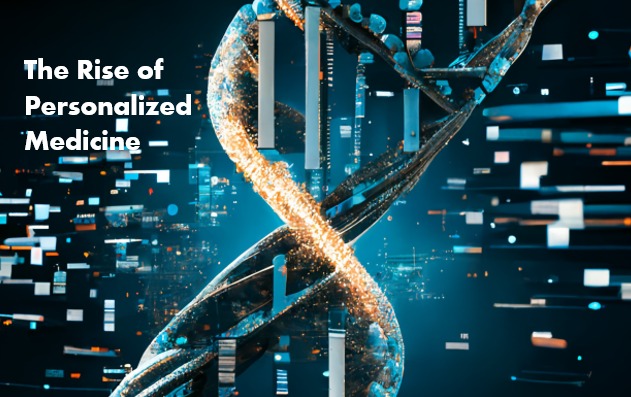Biotechnology has significantly transformed the healthcare industry, paving the way for personalized medicine and groundbreaking gene editing techniques. In this article, we’ll explore the impact of biotechnology on healthcare, focusing on personalized medicine and gene editing.
Personalized Medicine: Tailoring Treatment to the Individual
Personalized medicine, also known as precision medicine, is a revolutionary approach to healthcare that takes into account an individual’s genetic makeup, lifestyle, and environment.
Genomic Sequencing
Advancements in biotechnology have made genomic sequencing more accessible and affordable. This allows healthcare professionals to identify genetic variations that may predispose individuals to specific diseases or affect their response to treatment.
Targeted Therapies
Personalized medicine enables the development of targeted therapies that are tailored to an individual’s genetic profile. These treatments can be more effective and have fewer side effects than traditional one-size-fits-all approaches.
Gene Editing: Unlocking the Potential of CRISPR
Gene editing technologies, particularly CRISPR-Cas9, have revolutionized the ability to modify and edit genes with unprecedented precision.
Disease Prevention
CRISPR-Cas9 offers the potential to correct genetic mutations responsible for various hereditary diseases, offering hope for previously untreatable conditions.
Ethical Considerations
While gene editing holds great promise, it also raises ethical questions, such as the potential for designer babies and unintended consequences.
Advancements in Vaccine Development
Biotechnology has played a pivotal role in the rapid development of vaccines, particularly in response to global health crises.
mRNA Vaccines
The development of mRNA vaccine technology, as seen with COVID-19 vaccines, has demonstrated the agility of biotechnology in responding to emerging threats.
Personalized Vaccines
Biotechnology may lead to the development of personalized vaccines tailored to an individual’s specific immune system, potentially enhancing vaccine efficacy.
Drug Discovery and Development
Biotechnology has accelerated drug discovery and development processes.
High-Throughput Screening
Automated high-throughput screening allows for the rapid testing of thousands of compounds, expediting drug discovery.
Drug Repurposing
Biotechnology tools enable the identification of existing drugs that can be repurposed for new therapeutic purposes, saving time and resources.
Regulatory Challenges and Ethical Considerations
While biotechnology offers immense potential, it also presents regulatory challenges and ethical dilemmas.
Regulatory Frameworks
Regulatory bodies must adapt to the rapid pace of biotechnological advancements to ensure safety and efficacy.
Informed Consent
Ensuring that individuals fully understand the implications of genetic testing and gene editing is crucial to respecting their autonomy.
The Future of Healthcare
Biotechnology’s influence on healthcare continues to expand, with implications for disease prevention, treatment, and even human enhancement.
Tailored Healthcare
Personalized medicine and gene editing promise more effective, less invasive, and patient-centric healthcare.
Collaborative Efforts
The collaboration between scientists, healthcare professionals, policymakers, and the public is essential to navigate the ethical and regulatory challenges posed by biotechnology.
Conclusion
Biotechnology has ushered in a new era of healthcare, where treatments are increasingly tailored to individual genetic profiles, and diseases may be prevented and treated at the genetic level. While the potential benefits are vast, addressing regulatory, ethical, and privacy concerns will be essential to ensure that biotechnology continues to advance healthcare in a responsible and ethical manner.
